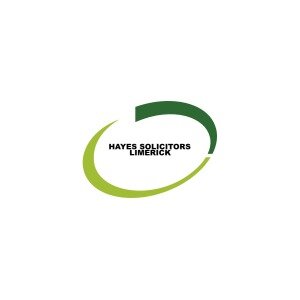Best Oil, Gas & Energy Lawyers in Ireland
Share your needs with us, get contacted by law firms.
Free. Takes 2 min.
Or refine your search by selecting a city:
List of the best lawyers in Ireland
About Oil, Gas & Energy Law in Ireland
Oil, gas, and energy law in Ireland covers the legal framework governing the exploration, extraction, production, and distribution of energy resources. Ireland's energy sector is influenced by both national initiatives and European Union directives aimed at ensuring energy security, sustainability, and efficiency. With a focus on renewable energy, Ireland seeks to reduce traditional reliance on fossil fuels, promoting investment in wind, solar, and other renewable sources.
Why You May Need a Lawyer
There are several situations where individuals or businesses might require legal advice in the oil, gas, and energy sectors:
- Property Rights and Land Use: When negotiating land access for energy exploration or infrastructure projects.
- Regulatory Compliance: Ensuring compliance with local and EU energy regulations, environmental laws, and safety standards.
- Contract Negotiations: Drafting and reviewing contracts related to energy supply, distribution, or joint ventures.
- Dispute Resolution: Settling disputes related to energy projects or service agreements.
- Environmental Impact Assessments: Navigating the legal requirements of conducting impact assessments for new energy developments.
- Mergers and Acquisitions: Handling the legal aspects of buying or selling energy assets or entities.
Local Laws Overview
Key legal aspects of the oil, gas, and energy sector in Ireland include:
- Energy Acts: Legislation such as the Electricity Regulation Act 1999 oversees market operations and sets out the framework for electricity and gas supply.
- Planning and Development: The Planning and Development Act regulates the planning permissions required for energy infrastructure projects.
- Petroleum and Other Minerals Development Act 1960: Governs the exploration and extraction of mineral resources.
- Renewable Energy Directives: Supports the transition to renewable energy in line with Ireland’s commitment to reducing carbon emissions.
- Environmental Protection Laws: Ensure minimal ecological disruption during the exploration and exploitation of energy resources.
Frequently Asked Questions
1. How is energy regulated in Ireland?
Energy in Ireland is regulated by the Commission for Regulation of Utilities (CRU), which oversees electricity, natural gas, and water sectors to ensure safe, secure, and sustainable services.
2. What are Ireland's main renewable energy sources?
Ireland primarily focuses on wind and solar energy, with onshore and offshore wind turbines and photovoltaic solar installations playing a major role in energy production.
3. Are there incentives for renewable energy projects in Ireland?
Yes, the Irish government offers various incentives and schemes, such as REFIT and RESS, to promote investment in renewable energy projects.
4. What are the requirements for conducting an Environmental Impact Assessment (EIA) in Ireland?
EIAs are mandatory for large-scale projects. They involve a detailed analysis of the potential environmental effects and require public consultations and governmental approval.
5. Can foreign companies invest in Ireland’s energy sector?
Yes, foreign companies are welcome, and often encouraged, to invest in the Irish energy sector, particularly in renewable energy projects.
6. How does Brexit affect Ireland’s energy sector?
Brexit has implications for Ireland's energy sector, particularly concerning the UK-Ireland electricity market integration. Both countries are working to ensure continued cooperation and uninterrupted supply.
7. What legal considerations are there for offshore wind projects?
Offshore projects require careful attention to maritime laws, environmental regulations, and the securing of licenses and permits from Irish authorities.
8. How does one apply for an oil exploration license in Ireland?
Prospective operators must submit an application to the Department of the Environment, Climate and Communications, outlining their proposed exploration activities.
9. What safety regulations apply to energy facilities?
Energy facilities must comply with health and safety standards established by the Health and Safety Authority of Ireland, covering everything from equipment safety to employee protection.
10. Can landowners negotiate with energy companies directly?
Landowners can negotiate agreements with energy companies, usually involving compensation and terms for land use. Legal advice is recommended to ensure fair terms.
Additional Resources
Consider exploring the following resources for further information and assistance:
- Commission for Regulation of Utilities (CRU): Ireland's independent energy and water regulator.
- Department of the Environment, Climate and Communications: Responsible for energy regulation and policy.
- Sustainable Energy Authority of Ireland (SEAI): Provides support and information on sustainable energy solutions.
- Environmental Protection Agency (EPA): Offers guidance on environmental aspects related to energy projects.
Next Steps
If you need legal assistance in the oil, gas, and energy sector in Ireland, consider taking the following steps:
- Identify your specific legal needs and issues.
- Research and reach out to law firms or practitioners specializing in energy law.
- Prepare relevant documents and background information for consultation.
- Schedule a meeting with a qualified lawyer to discuss your case.
- Follow legal guidance and develop a strategy addressing your needs.
Lawzana helps you find the best lawyers and law firms in Ireland through a curated and pre-screened list of qualified legal professionals. Our platform offers rankings and detailed profiles of attorneys and law firms, allowing you to compare based on practice areas, including Oil, Gas & Energy, experience, and client feedback.
Each profile includes a description of the firm's areas of practice, client reviews, team members and partners, year of establishment, spoken languages, office locations, contact information, social media presence, and any published articles or resources. Most firms on our platform speak English and are experienced in both local and international legal matters.
Get a quote from top-rated law firms in Ireland — quickly, securely, and without unnecessary hassle.
Disclaimer:
The information provided on this page is for general informational purposes only and does not constitute legal advice. While we strive to ensure the accuracy and relevance of the content, legal information may change over time, and interpretations of the law can vary. You should always consult with a qualified legal professional for advice specific to your situation.
We disclaim all liability for actions taken or not taken based on the content of this page. If you believe any information is incorrect or outdated, please contact us, and we will review and update it where appropriate.
Browse oil, gas & energy law firms by city in Ireland
Refine your search by selecting a city.
















